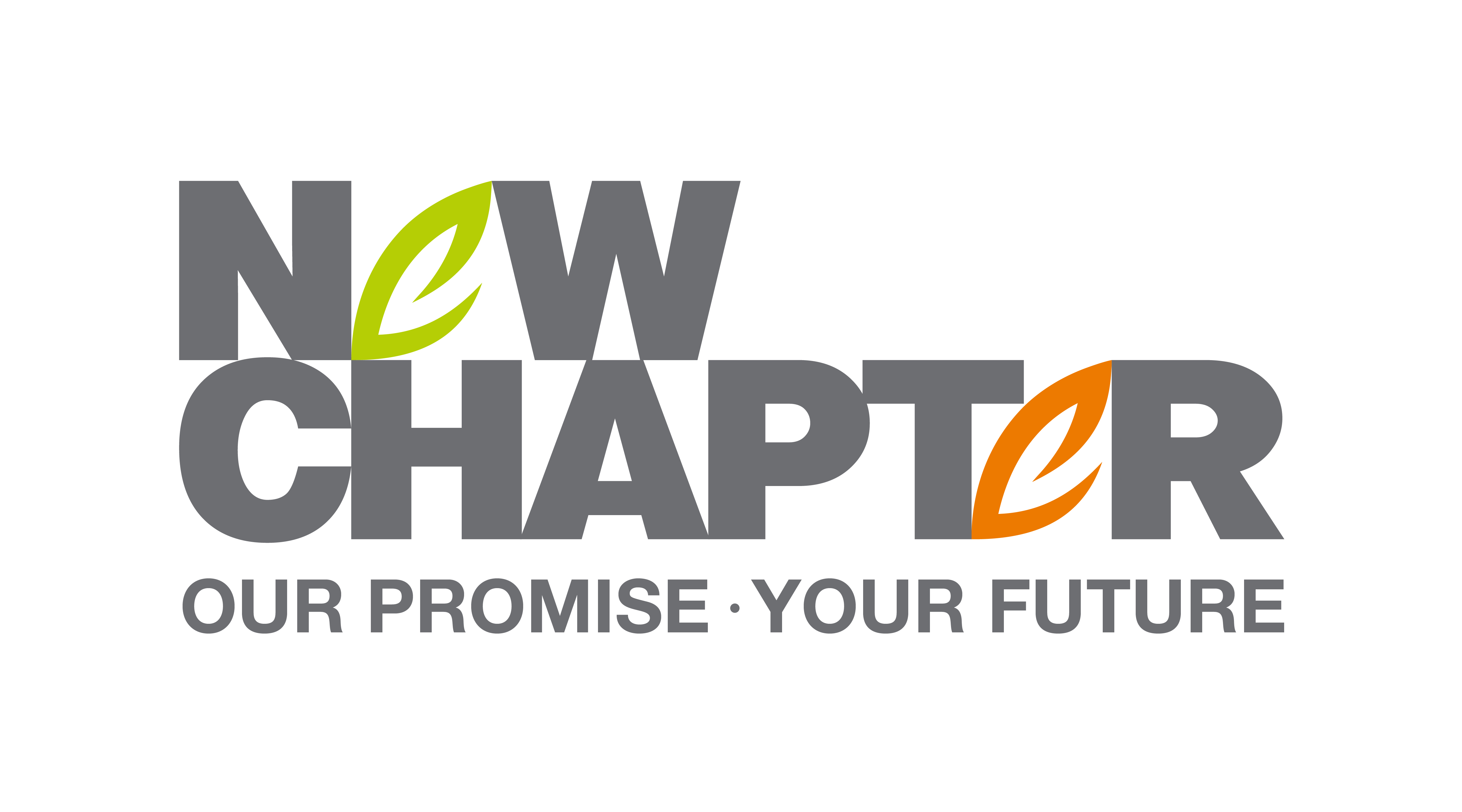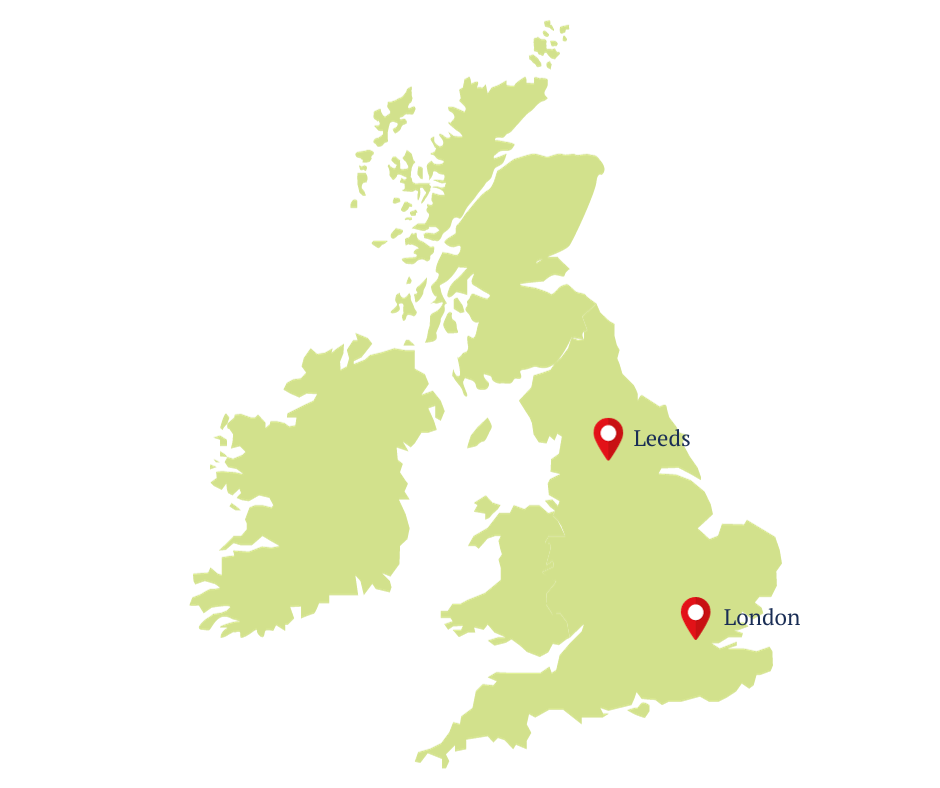Category: Top Tips
-

Facing Job Rejection and Planning Your Next...
Continue ReadingFacing Job Rejection and Planning Your Next Steps
With all the effort that goes into securing a new role and the excitement of potentially landing a dream job, facing job rejection can be very hard thing to process, no matter what stage of the search journey you are at.
Your confidence can certainly take a knock and it can be easy to beat your self up but the key to remember is with the right mindset job rejection can be used as a powerful career development tactic. Learning how to deal with rejection is a valuable talent to have and one that, if mastered, can only make you stronger.
We have gathered a few ways to help you prepare or in fact, help you through a current struggle from job rejection plus what next steps to take.

This can be easier said than done for some, however…
Initially it can take a bit of time to accept, during this period only focusing on the negatives of your process, criticizing your self and thinking poorly of your abilities and performance is not going to help nor change the out come, in fact it will just make you feel a lot worse! You can of course do this constructively which we will touch on later in our blog.
Holding frustration or resentment on the situation will only hinder your job search because of course, facing job rejection is not the end of your search.
If you got as far as interview stage, that’s already more than many and you did extremely well. Remain positive and focus on all your amazing skills and qualities to help pick yourself up and confidently walk into your next interview. Now is the time to keep believing in yourself!
It may seem strange we are suggesting that you thank someone following a job rejection. However, in the long term, it can be beneficial to your career. Your thank-you note is an opportunity for you to expand your network, ask for feedback and request consideration for any future opportunities.
As we mentioned a follow up message gives an opportunity to gather feedback. This can sometimes feel slightly daunting but blending it in to a soft follow up email can make it much easier!
It’s never nice hearing negative feedback about ourselves, but first of all it is important to remember that feedback is not always negative. It may perhaps be you are overqualified for a role or perhaps they don’t feel as though they will meet your cultural expectations for example.
Either way, feedback can only have a positive outcome as we learn and move on with a deeper insight and development of ourselves, it is something you can take and use to your advantage in your next interview.
Remember to ask what they thought went well too, this a positive way to end the feedback and help you feel encouraged by other areas of your performance.
Your qualities and abilities are still amazing even if you were denied, so don’t take that as a reflection. When it comes to the hiring process companies weigh up multiple considerations, not to mention they can face hundreds of initial applicants. There can be so many factors out your control as to why you may or may not land the job.
Try to focus on what you can control and let go of what you can’t.
Remember that what one employer may not want, another may love and have the absolute need for – we cant be perfect for everyone, equally as they are not always perfect for us!
Acknowledge that rejection is a necessary part of life we all go through and accept the rejection with acceptance. What is meant for you will be, so however frustrating the situation try to keep that message focal in your mind.
If you accept failure with an open mind, you are opening the door to other new opportunities and taking yourself down a new path that will lead to your success and happiness!

Working on these areas will help you stay positive in your job search which must go on.
So, what next steps should you take?
Once you receive your feedback take some time to process each area, take a look at each part and what the interviewer felt could be improved.
- What went well, where were mistakes and what could have been improved.
- Did you do enough research on the company?
- Did you prepare your answers thoroughly enough?
- If you had to present, were your presentation skills the best they could be, was your presentation accurate and detailed enough?
Try and understand each area of the interview you gained feedback on and identify what was not right for this company, or what you need to work on going forward.
Use your experience and feedback as personal development for future stages of your job search.
Make note of key areas from your analysis, particularly any weaknesses or issues that going forward, you can use to fix any potential gaps within your performance and try to avoid in future.
If job rejection is affecting your confidence build your self a ‘bragging list’.
Make a list of all your accomplishments, qualities, skills and any stand out contributions in past roles.
Within your list you could include some key achievements such as obstacles you have faced in your career and what you did to over come them. Questions like this are not only great to showcase, but they can be common in interviews so you will be pre prepared with strong answers.
This straightforward task can instantly transform you from disheartened to totally excited by recognising your talents and capacity to succeed in the face of a difficult situation.
Practice makes perfect, you can never do too much of it!
It’s always great to be prepared and this is particularly important if you think it could be where you fell short. Focus on areas you struggled with and maybe even try practicing with a college or family member for your next interview. Check out our past blog full of lots of interview prep tips to help you build that confidence for the next time one occurs.
One of the most important next steps, Get back out there!
Although going back to square one can feel extremely draining at times, looking for your next role can help keep your mind busy and distract you from the recent rejection. Plus, finding roles which excite you will help to remind there are more great opportunities out there and may help return some of your motivation and joy to the job search!
While dealing with rejection is never easy, it can be a great way to learn more about yourself and improve your job search strategies. Good things are always worth the wait, and with perseverance and a positive mindset, your dream career could be only around the corner.
-

Creating a Winning CV
Continue ReadingCreating a Winning CV
If you’d like to get your foot in the door with your dream company, you need a winning CV that represents you in the best way possible.
Your CV is one of the most important marketing tools in your job search and you only have one chance to make that all important first impression. Particularly as most employers spend just a few seconds scanning each CV before sticking it in the ‘Yes’ or ‘No’ pile.
Your CV acts as the all-important first impression to your future employer. With the right layout, content, style, and length, you will be much more successful in securing an interview. Without it however, you may go unnoticed in a sea of applicants.
There are no set rules to CV writing; however, by following our tips and adapting your CV sensibly to suit your circumstances, you will create a highly effective CV that will maximise your chances of securing interviews!
Before putting pen to paper, regardless of whether you are an entry level candidate or seasoned working professional, all winning CVs should be tailored to the role and type of business you are applying for. For your application and interest in the role to be read as genuine, you should always: research the business you are applying to, read (and understand) the job description, and tailor your language and content to the opportunity itself.
The one-page résumé is not popular in the UK market, so keep your CV to two pages.
TIP: Make sure you start with your name clearly at the top – not the words Curriculum Vitae!
This means starting with your most recent career role and then working backwards chronologically. Remember to follow this through all areas such as education i.e., most recent studies will also appear at the top.
Use your CV to create a strong sales pitch on yourself, relevant to the job you are applying for. Stick to quality over quantity and keep it around three lines. Focus each past role on the relevant specific experiences you’ve gained (including sectors) and skills, rather than unsubstantiated value judgements (e.g., effective communicator, strong leader, flexible team member).
Do not produce another generic CV – create a strong personal brand that is appropriate to the marketplace.
Details of your work history, achievements, accountabilities, qualifications, e-mail, and mobile are wanted – not your life story.
Simplicity is the key. Leave plenty of white space and appropriately use headings. Try to avoid the tempting jazzy templates available online, although they may look nice, they can distract from you and the important stuff! The only time we would recommend exploring a more ‘fun’ CV is for creative industries and roles.
No errors or irrelevancies please. Remember, companies do reference checks, so keep all the information you provide honest and accurate.
Supporting correspondence should be short, stating position applied for and matched with your skills, competencies and experience requested. If you are submitting your winning CV on a speculative basis, a more depth about your match with the organisation’s need is required.
Include a personal statement. Use this section to express something of your personality and help the company get a feel for you as a person but keep this section brief and factual. A CV is designed to reflect, rationalise and refine (not to tell a detailed life story!)
Your CV is simply to get you to the interview stage – don’t over think it. Make a good first impression, relate your experience to the role you are applying for and work from there!
This requires research into individual companies and roles to understand what they value. Be prepared to tailor your basic CV to the specific needs of each application. Remember to capitalise on the language of the job advert and what it tells you about your recruiter’s priorities. Make sure you speak their language.
Be specific about your experience and areas of expertise. Take time to sift out what is not needed to create a winning CV sales document.
- It may be of value to include a brief summary of the nature and size of the companies you have worked for
- Quantify and qualify your achievements – be clear about the ‘added value’ that they highlight – why should the recruiter hire you?
- Give figures, names of other companies and customers etc. to indicate your calibre and field of operation
- Demonstrate your impact – write to influence. Less is more – use action words “Managed, Created, Led, Initiated, Inspired, Championed, Delivered…….etc.” and avoid using “I” Always write in the third person and use the past tense
- Use job titles and terminology that make sense to the reader – avoid jargon
Comments from the team
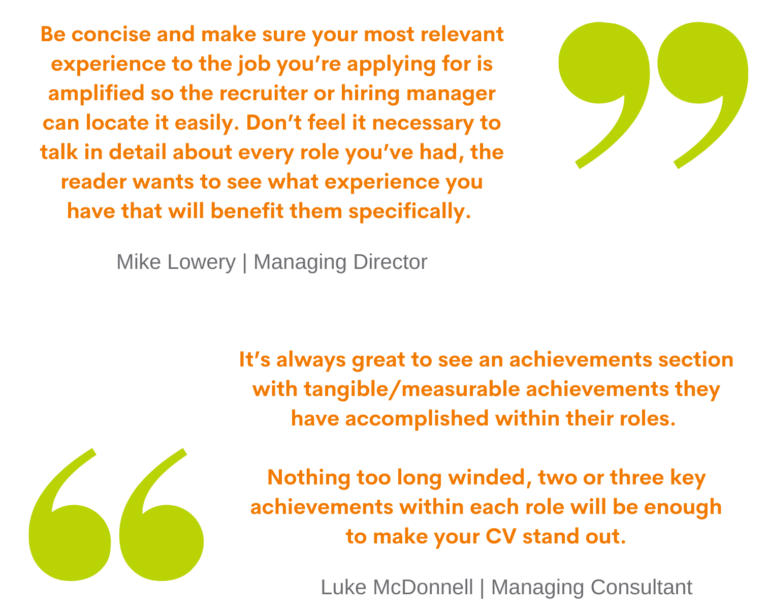
If you are interested in gaining advice from any of our consultants or discussing potential opportunities within FMCG they would love to chat.
-

Negotiating a Salary Increase
Continue ReadingNegotiating a Salary Increase
Salary increase negotiation can be a sensitive and scary conversation to have. Generally, it can occur in two key circumstances: within your current role where you are no longer satisfied with your pay, or before accepting a new job. Particularly when working with recruiters, a salary negotiation for a new role can be made far easier as recruiters have, both, relationships with clients and experience; meaning they have a strong skillset ready to get you where you want to be. Plus, their strong market knowledge allows them to assess and advise you with the most appropriate salary increase information relevant to you.
You can check out our past blog to understand further benefits of working with a recruiter to secure your next role.

Quite frequently individuals decide to look for a new role that pays higher instead of approaching these conversations surrounding a pay rise. First of all, if you are interviewing elsewhere with the intention of using a job offer to initiate salary negotiation with your current employer, it is absolutely worth having the chat with your Manager first – this would save you a lot of time! If salary is your only motivation to leave, anticipating a counter offer as a result of the above could receive a negative response as it could be viewed as holding a gun to your employers head in order to get what you want. More likely than not, they will do what they can to keep you and will be open to understanding your reasoning and resolving that.
So, get discussing that salary!
Going into this you need to have a clear and confident understanding of your value. Given you are in this situation and ready to approach the conversation of a salary increase. It means you more than likely do know your worth! However, having confidence in yourself and your abilities is extremely valuable,. In this circumstance, it is important to remain grounded and realistic.
With that said, taking time to research the market can help provide you with a realistic guideline and comparison of relevant salary averages. Doing so will help put you one step ahead as it shows you have collected solid evidence to back up your request. Plus this data will be very valuable to help give you leverage when starting the negotiation.
You can find this information by looking on job boards such as indeed and internal company job pages via their website. When doing your research, you could take it one step further and narrow the search right down to your local area.
Another method you could use is through our very own 2022 FMCG Salary guide. A newly released guide specifically to help you benchmark your salary against others. FREE DOWNLOAD.
Gather all the information you can to build a portfolio of evidence to support your request. Show what you have achieved and how this has helped your wider organisation. Use this as an opportunity to showcase all your achievements and skill sets, covering things such as:
- Goals, Targets and/or KPIs: how they have been met and what they have achieved.
- Any large projects you have successfully completed.
- Circumstances where your abilities / work has stood out.
- Recent training or qualifications you have completed.
- Make sure you point out any niche skills which bring a lot of value to the company and may be hard to replace.
Evidencing all of this will let the company know what it might cost to replace you and illustrate your worth.
Remember – as well as showcasing yourself, make sure to share what you can continue to do for the business too. Including what will you deliver going forward, goals you want to achieve, ideas you have for growth etc. This will help to also show your enthusiasm and passion, which can never look bad!
Once you have collected all your ‘evidence’ make sure you know it through and through. You want to go into that meeting confident, as you are essentially there to sell yourself. Make sure you spend time thoroughly understanding your justification for the request. This ensures that you can be ready to face any challenging questions there may be against it.
How you best approach this will entirely depend on your personal relationship with your Manager. We suggest booking a time in the diary to discuss this is your best bet, regardless of whether you disclose the reason prior or not. It will allow you the time to prepare and your manager will have specific time to dedicate to the conversation.
Be mindful to organise this when your business is not facing a tough time. Doing so may look inconsiderate to the wider organisation and selfish. Approach this in the most positive as possible environment with full respect for everyone involved.
Make sure to have also done the groundwork and given your all in the runup. You may set yourself off on the back foot if you approach this following a period of poor performance.
You want to stay humble and confident when meeting with your Manager. Never compare your self to your fellow employees or say anything that could reflect negatively. When communicating, you want to appear confident in what you’re saying. Project your confidence through your body language and maintained eye contact.
If you are struggling with nerves on the day, which of course is common in what can be a very daunting meeting. Try to look at the negotiation as a partnership between you and your boss, and not you versus your boss. This way, you will help to decrease the pressure in your mind, making you feel at ease and calm.
When discussing the salary first of all, let your Manager take the lead. See what figures they may propose before you begin negotiating.
Following that, you want to keep it strictly business related. It is unlikely your Manager will take personal financial situations into consideration and relevance to your salary increase. Make sure to keep the conversation away from this and rather about the value of your contribution.
There are many ways in which organisations can reward their staff, above and beyond salary. Perks and benefits are something you should always consider too. This could be through benefits such as: hybrid working, increased holiday allowance, pension contribution, performance related bonuses, job title changes and much more!
So don’t think purely about the money. Particularly if your Manager doesn’t seem too keen on the idea, as uou can get more value out of your role.
The main thing from all of this is to keep your expectations low and don’t presume you will get confirmation at the end of your meeting. It is unlikely you will get an answer there and then. Give your Manager time to review your request and analyze all your reasonings.
Don’t forget about yourself. You may be presented with an offer in your meeting however, it is a good idea to take some time to reflect afterwards. Don’t feel obliged to accept anything so don’t be afraid to take time to think about it first. Maybe presenting alternatives if you think there could be some room for maneuver. You’ve done all that research and groundwork, so don’t throw it away by making a snap decision!
Hopefully our tips can help you feel more comfortable about approaching this salary increase conversation with your Manager. We have our fingers crossed for you!
Even if you are unsuccessful with your request the first time don’t let it effect you. There are always other things like external factors to consider which may influence this too. Remember, your boss may be happy to review the request in a few months time or present you with an alternative proposition. Be patient with the situation – persistence and hard work pays off!
Please don’t hesitate to get in touch if you would like to discuss job opportunities within FMCG.
-

Why You Should Work With Recruiters: Candidates
Continue ReadingWhy You Should Work With Recruiters: Candidates
Working eith recruiters: the excitement of a career change is sometimes hindered by the daunting effort of job hunting. Whether you’re making a big industry move, quitting your existing role or just try something new. Arecruiter can add a lot of support and value to your journey. No matter how big or small.
Job boards and social media allow vacancies to be so readily available to us. With many platforms allowing you to upload your CV and be approached by companies without even looking. So why should you use a recruiter to secure your next role?
Recruiters are like your personal cheerleader. They are there to help you be your best and guide you through the process closely. Helping you increase the chances of securing the perfect role.
Let us explain in more detail…
Job searching can be a very tedious and slow process at times. By working with a recruiter you are adding another member to your team and essentially splitting the workload.
Of course, it comes with the advantage that this is what recruiters dedicate a huge percentage of their time to daily and they know the markets extremely well. With that knowledge, on top of the information you provide. They can usually find ideal vacancies quickly, that match up with your desires and skillsets.
Following from that, recruiters often have strong relationships with hiring managers and companies. This means they can influence and speed up the process at each stage as and when needed.
Relative to relationships recruiters have with clients, it means that they can often get you greater access to opportunities and companies. Not all vacancies are posted on job boards. Some companies post solely on their website or just strictly rely on agencies to source their candidates.
With that, it’s important to remember the scale of network size recruiters tend to have. Taking advantage of this can allow you to get the most out of your job seeking efforts through extremely credible leads.
You will find that most recruiters are specialist in their area, working on one or few industries.
That means their connections and knowledge in your relevant industry will be very strong. With that in mind, they have the ability to provide you with excellent advice throughout your job search. They can provide great career advice on the whole as experts in the field.
Securing a job can be an extensive process, with multiple stage interviews and phone calls. Recruiters can work closely with you throughout the journey to help support you at each stage. From interview practice, to project reviews and company specific advice.
When it comes to securing a role, some individuals can find it nerve-wracking to negotiate. This is another reason why recruiters are great – they can do the job for you! This includes negotiating salary, benefits to the role duties. We are there to cover every element with the company and help shape it to work best for both you and them.
If you don’t make the first job you go for a recruiter will always stick by you to continue the search. One key thing to remember is that your details won’t be lost in a huge database. The systems will always work to pull out your relevant information and constantly keep you in consideration in the future.

Let us match your CV to the best role…
What it's like working with New Chapter, from Candidate to Client:
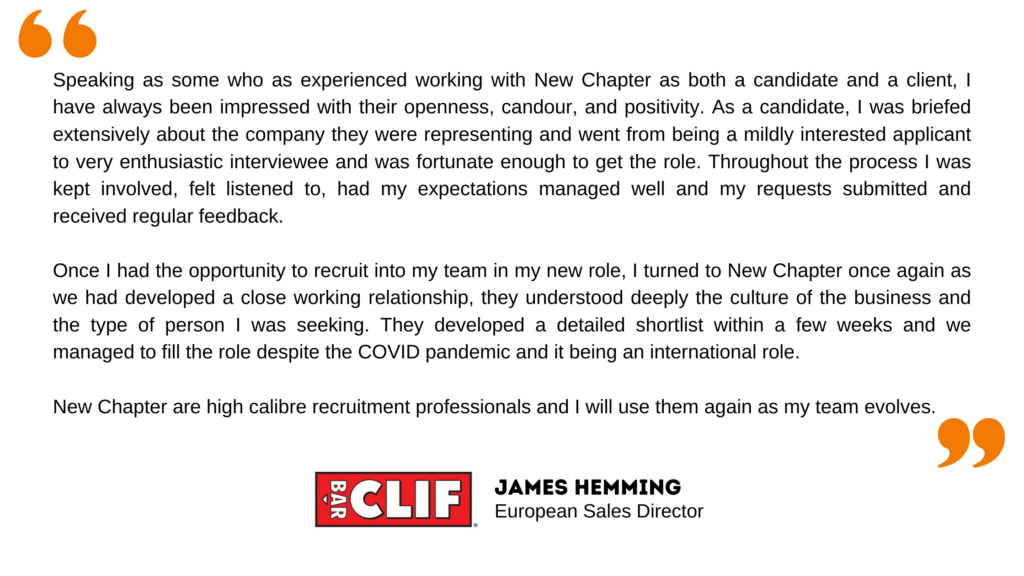
At New Chapter, our consultants have a genuine interest in helping match you with the perfect role and company, they will do everything they can to help you fulfil your career goals. Our close support throughout the process helps lead to optimum happiness and satisfaction in your career move which is extremely important to us.
If you would like to have a chat about your next move, or simply just find out what opportunities we are working on then please don’t hesitate to get in touch.
-

Ten Steps to Improving Your Daily Productivity
Continue Reading
Ten Tips to Improve Daily Productivity
There are only so many hours in the working day, so what we have is very valuable to our productivity.
Starting the day with an organized to do list and set goals. But before you know it the day is nearing the end and your list is suddenly longer when you started.
Fast turnaround of work can be mistaken for productivity. It’s very easy to end up being overwhelmed by our workload or obsessing over end goals. Often, a fast turnaround may mean that work is completed to a lower standard than if the turnaround was longer.
Paying no attention to both the process of getting there, or the efficiency of the process, can have adverse effects too. Short term goals may be achieved. But reaching longer term goals with no method, time or patience can hinder this achievement.
To work to your optimum, you are then left with two choices – work for longer hours, or work smart.
So, what is key for this? Of course… Productivity.
We often implement changes to improve our productivity and routine throughout life. Or at least attempt to, with it quite often lasting only for a short period of time. However, in this blog we have pulled together some of our favourite tips and tricks for you to trial and implement. Keep in mind that 21 days is the typical time frame to set a new habit permanently. Chose wisely and stay consistent!
A great way to get on top of, and master your productivity, is giving a short amount of time to review your progress that day. You can then decipher what tasks you need to complete tomorrow. Make a brief plan and review it in the morning. Not only does this help with your organization but it can help you switch off at the end of the day. You are able to wind down for the evening knowing where you stand with your work.
In fact, have many breaks. You may feel as you don’t need one, but your brain and body will. Stepping away from our screens for a short period of time can help clear your head and give a fresh start. Breaks are said to help you retain and process information and in turn improve your performance.
So, go for a short walk, have a cup of tea, and take ten minutes in a new environment, have a chat with a colleague, read a book. Whatever is for you.
If we don’t take breaks, we can easily get drained with head fog and all the rest. When you have important tasks to do it can really help to identify your ‘awake’ hours (the time in the day where you generally find your drive, creativity and productivity is at it’s highest). To find your awake hours we suggest you pay attention to your body and identify when this time is over a week period. Then, going forward make sure you prioritize your most important tasks in those hours.
Don’t waste your brain power trying to remember things. Have a note pad where you can scribble down any thoughts. If you’re a perfectionist, have another notepad where you can enjoy organising and displaying these thoughts appropriately.
Making notes, mindmaps, lists (whichever you prefer) has many benefits. First and foremost, it can help you stay on track and do the things you need to do rather than put them off. These methods can also help you off load all the things going on in your head and stay productive.
Use time blocks when planning your day by writing out your tasks and assigning the time you will give to each one.
Stay disciplined with this and have control when beginning and ending new and current tasks.
This is a time management tool that will encourage you to recognize your priorities and spread your time evenly over the working day. It can help push you to give ultimate focus and effort on the task you are working on and will help combat procrastination.
*TIP: giving yourself less time than you think you need may help with task completion or focus. Particularly if you work well under pressure.
The worst two work barriers there are.
Most importantly and obviously – keep that personal phone on DND. In fact, put it out of site completely, to stop that aimless scrolling!
If you find yourself procrastinating and avoiding tasks at all costs, try and turn this time into a ‘positive’ procrastination. By this we mean doing all the little tasks or procrastinating with things you can benefit from. Such as brainstorming, planning, working on your notes etc.
If you have tasks that reoccur on a weekly or monthly basis, try to schedule completion of these at the same time every occurrence. This will help it become an implemented routine which won’t be a choice of completing. Eventually it will become a natural, easy task.
This can vary between individuals, but for many, music can help you get in a real focused state. Get those headphones in and block out any surrounding distractions.
Lo-fi music is often lyric free, relaxing and follows a steady tempo. This can be a good go to style for working, as it keeps the listener engaged and un-distracted by any lyrics which can lead to better comprehension and working.
Big heavy meals at lunch time are not the best idea. The digestion of a big meal can make you feel extremely tired and lethargic which can be an annoying hinder on your productivity.
Although lunch is a great break a lot of us look forward to in the day, try to keep it light. Snacking is a great way to fill your mini break slots at work so try doing little and often rather than one big lunch.
Be forgiving of yourself. We all have off days where we are trying to squeeze a reasonable amount of productivity out of ourselves. And all face those frustrating days where you have that block you just can’t brush off, but that is ok. We need to learn to be accepting of that not only for ourselves but others too.
The best thing to do when feeling like this is to talk. Someone might have some tips to help you combat this or alternatively you may be given some different tasks to try and work on. Take a break, clear your head, and start again. The worst thing to do here is to try and deal with it yourself. Then spend the day aimlessly getting nothing done. Accept how you’re feeling and work on doing something about it!

If you like what you see feel free to use our contact form to get in touch. We are always looking to expand our family at NC and are open to recieving CVs.
Head over to our website to learn more about us and explore the opportunities we are working on within the FMCG market.
-

No Years Resolutions
Continue ReadingNo Years Resolution
It’s that time of year where all the new year well wishes are followed by, “what’s your New Years resolution”.
Not only that, there is also a constant flow from brands and people alike bombarding you with the ‘new year, new me’, where we fall into the trap of believing that we owe ourselves and others a new version of who we are.
It almost seems that at this time of year change is a must if we want to be happy.
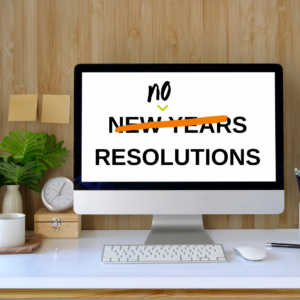
Our new year’s resolutions often end up being more of what we hate (spending more time in the gym) and less of what we love (eating chocolate)!
As most of us find, year in year out, loading this pressure on ourselves is often very counterproductive with the stress of sticking to it and the disappointment of failing making you feel pretty rubbish, which ultimately can make you avoid attempting positive changes in the future.
One article reports that of those who made resolutions, only a quarter kept all of them (26%), half managed to keep some of them (48%) and around a quarter failed entirely (23%).
However, ‘New year, new me’ is not all bad and it can of course be fun. Heading into the new year with a positive and determined mindset is a great thing… especially when there’s things you want to leave behind!
Some of us like the challenge too and it can really help to push us in the right direction, but for those who dismiss resolutions or find them selves failing to achieve their goals, we have got some tips for you:
Don’t put a time frame on things. Knowing you’re not putting pressure on yourself to achieve these changes by a set date will also give you confidence that if you have a bad day or fall back into old habits, you can pick up where you left off instead of quitting up and beginning over next year.
Take the pressure off, be kind and realistic with your self. Rather than eating clean for a month, make the change more achievable by breaking this down. E.G. Instead of no ‘bad’ foods (which would be pretty dull and make you feel that way too), try first of all just limiting it to one treat meal per week.
Actively measure your progress, this will help you see what you are achieving and keep pushing you to continue.
Whenever possible, piggy-back on an existing habit. It’s a lot easier than trying to introduce and adopt a new habit.
Allow your self to have bad days – What matters is the long term. While you might occasionally fail, see a setback as just a setback – not a deal breaker.
New year, new me… a phrase that is all about becoming who you aspire to be – and no timescale can be put on that!
What do you think about New Years resolutions, have you set any this year?
Share your thoughts on the topic in our comments box.
-
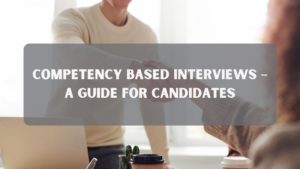
Competency Based Interviews – A Guide for...
Continue ReadingA Guide to Help You Prepare for Your Competency Based Interview

Aside from regular, interviews based around open questions with little structure, you may find your self needing to prepare for a competency-based interview.
Aimed at taking examples of your past experiences and situations to compare you to other candidates, these interviews can require a little more prep time and we have you covered!
So, what is a competency based interview?
Also known as structured, behavioural or situational, this style of interview is designed to find out how you have used specific skills in your previous experience and how you approach problems, tasks and challenges. Based on the idea that past behaviour is the best predictor of future behaviour.
Competency based interviews are more systematic in comparison to a standard, unstructured interview. The interviewer will ask you a series of questions, each concentrating on a different ability, and your responses will be compared to pre-determined criteria and graded appropriately. The interviewer will want specific examples of when and how you demonstrated particular behaviours.
The word competency is widely used in business and personnel psychology and refers to the behaviours that are necessary to achieve the objectives of an organisation.
Competency Variations
There are a variety of competencies you can be assessed against, some of the key areas are as follows:
Your personal attributes: Flexibility, decisiveness, tenacity, independence, risk taking, personal integrity.
Taking charge of other people: Leadership, empowerment, strategic planning, corporate sensitivity, project management, management control.
The elements of decision making: Innovation, analytical skills, numerical problem solving, problem solving, practical learning, detail consciousness.
Dealing with other people: Communication, impact, persuasiveness, personal awareness, teamwork, openness.
The things that drive you: Resilience, energy, motivation, achievement orientation, initiative, quality focus
Preparing for the Interview
The key to providing successful answers to competency questions is preparation, luckily this is pretty easy to do.
Firstly, it’s essential that you read and understand the job advert, review the job description carefully and identify the skills and traits likely to be assessed. Next you must prepare by thinking of examples of when and how you’ve demonstrated each of these.
Competency focused, well-structured answers are extremely powerful and will win you the interviews.
Question examples
Essentially, the interviewer is searching for examples of important attributes in practice.
Your examples could derive from previous work, your education, or even personal hobbies, such as sports teams or groups you are involved in.
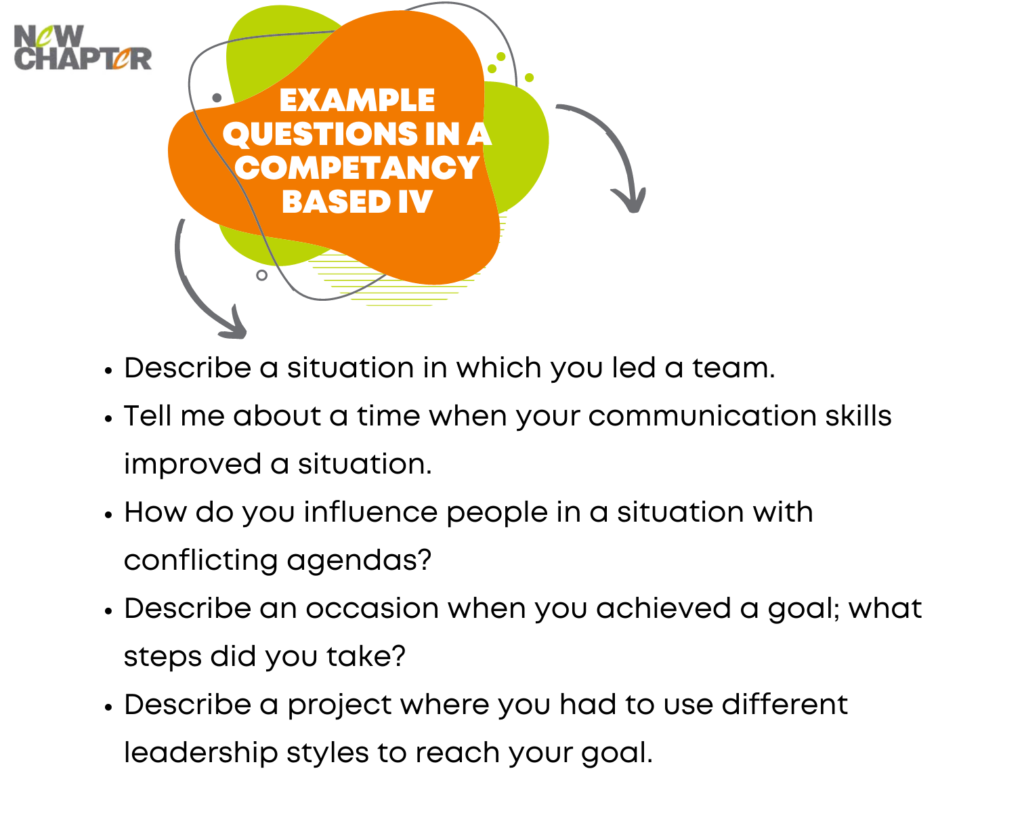
NC Top Tips
As you can see, responding to these questions requires a thorough recollection and a solid understanding of the examples you use in response to the question.
Practice makes perfect; preparing for interviews will help you succeed in showcasing your skills to a potential employer.
Follow our top tips below to ensure you’re expertly prepared…
Prior to the interview come up with six to ten responses that demonstrate behaviours and skills that employers typically seek. Use examples that will exploit your top selling points and make sure to vary these from times across the past five years – don’t focus specifically on one time throughout the IV.
- Half of your examples should be entirely positive, such as accomplishments or meeting goals
- The other half should be situations that started out negatively but either ended positively or you made the best of the outcome
*Use key skills highlighted in the job description to help you pick out attributes
Don’t make any false statements. You will be questioned on the subject, and any enhancements you’ve created will soon be recognised.
Don’t try and think on your feet, pressure can often get the better of us and you can end up forgetting to mention key points.
With that said, take your time to think of your answer. You shouldn’t feel under pressure to respond immediately.
Don’t rehearse too much so that you sound like a robot on the day – showing off your personality is a very valuable asset in an interview too!
STAR Model
The STAR model is something that you can follow to help you keep your answers clear and concise, identifying each following aspect of the model will help you establish a strong question response…
Situation: describe a situation or problem that you have encountered – the background / context
Task: describe the task you were faced with – what did the situation require?
Actions: describe the action you took and the obstacles that you had to overcome. How and why did you do this?
Results: highlight the outcomes achieved – what was accomplished or achieved from the situation?
*Relate the skill or ability you’re illustrating back to the vacancy you’re applying for and explain why it’s useful.
We wish you the very best of luck for your interview and future career!
If you would like any further advice or career help, please don’t hesitate to get in touch.
-
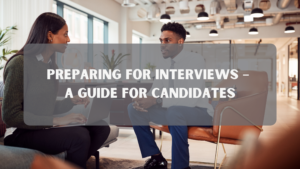
Preparing for an Interview – A Guide...
Continue ReadingPreparing for Interviews – A Guide for Candidates
There’s no such thing as being too prepared for your interview …
Job interviews can be a very nerve-racking time for the most of us. One of the key things to overcoming this and help you to excel on the day is preparation.
Putting time into planning and preparing for interviews will benefit you in so many ways. By influencing your chance of success and, most importantly, helping you stand out from other candidates.
We have compiled our NC top tips for you to follow. To help you get ready for your interview and bring your a-game.

Actions such as logging onto the Zoom meeting five minutes early or planning your route to the location beforehand may seem small, but they carry a lot of weight in an interview process and can help you stand out of the crowd.
For an in-person interview, you want to ensure you arrive with at least 10 minutes to spare. Not only will this give you time to settle and avoid any last-minute stress, but it will also reflect your punctuality and time keeping skills to the company.
Top tip:
- Being late is a BIG red flag, avoid it all costs.
- If you are going to be late, get in contact with the company at the earliest convenience to let them know.
As soon as you walk in the room your interviewer will begin making judgements from your appearance, to attitude, and how your hold yourself, thus making all these factors super important.
Dress codes in many workplaces are changing and have relaxed a lot over the last few years. But, that’s not to say dressing smart is no longer key for an interview, dressing appropriately for the role you are applying for can make a massive impact – particularly if you do it wrong! As a key pointer, stay away from jeans, T-shirts and clothing with logos or slogans. Smart and simple is safe but don’t hide your personality if this isn’t you, just be clear on the dress code in the company you are attending an interview for.
Top tip:
- Have a look on their social media pages to get an idea of the companies dress code.
- If you are still unsure, ask the person you are in contact with at the company.
Remember to be positive, enthusiastic, and most importantly, confident in yourself and your ability to succeed in both the interview and role you are applying for. A way to come across as confident is to show this through your body language – keep your shoulders back, hands still and maintain eye contact!
Prior to your interview ensure you research the company, so you have plenty of knowledge on them and their activities. The website, annual reports, trade brochures and social media pages are a great starting point for this.
You can take your prep further by completing research such as a SWOT analysis to view how the company is performing. Sharing your comments and observations on this in the interview can demonstrate your efforts to go the extra mile and your passion for the role / company.
Its very easy in an interview to politely say ‘no’ when asked if you have any questions but keeping the interview 2-way looks great.
Whilst hopefully, you will have naturally gathered some questions to ask at the end of your interview, this is not always the case, so it is a good idea to prepare some beforehand to ensure you come across interested and invested in both the company and process.
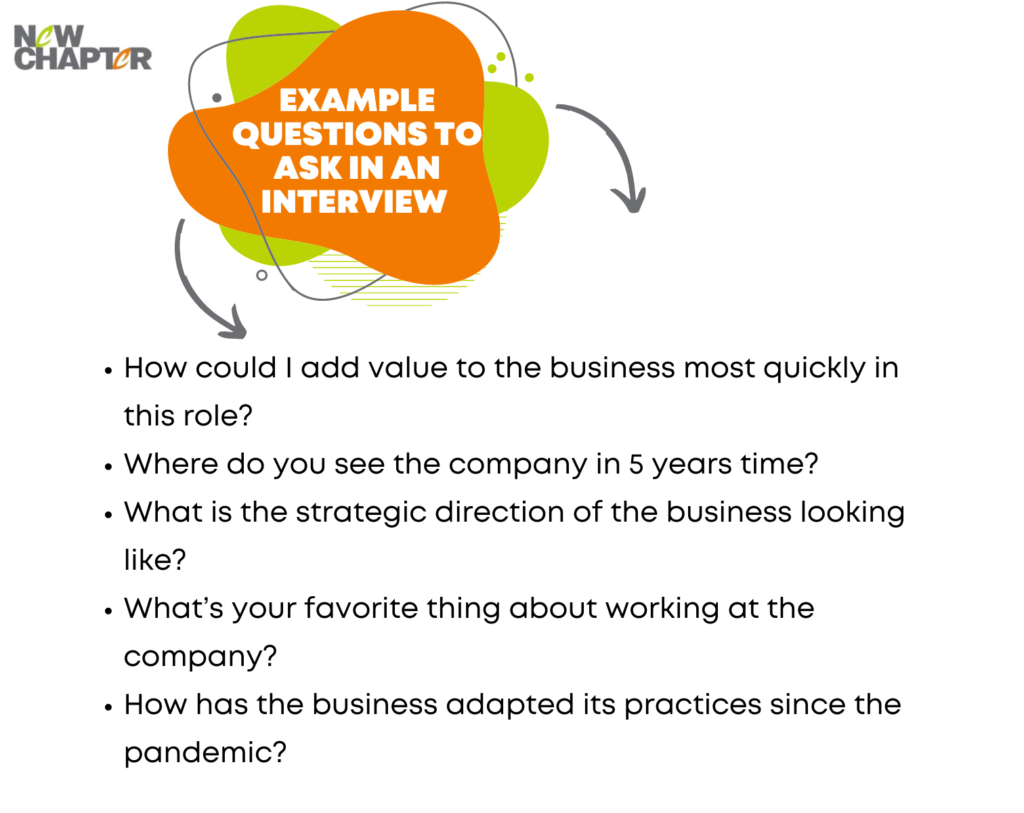
Use the job spec firstly, and most importantly, to form a clear understanding of the requirements and whether you feel this role is right for you. Following from this, use the spec to marry up your experience with both the personal and experiential requirements of the role, identify your strengths and weaknesses and use these in your favour.
Top tip:
- Don’t be afraid to ask for more information if you feel the job specification and requirements are not detailed enough.
When it comes around to the interview keep in mind that your interviewer has limited time to recognize your relevance and suitability for the role. This is where you need to use your experience and strengths to sell yourself and highlight your appropriateness for the role… Sell, don’t tell!!
Top tip:
- Know your CV! Simple but key. You want to be able to always refer to your CV to sell yourself. Focus on your experience, responsibilities, and achievements.
With that said, don’t be afraid to emphasise what you have achieved, particularly as we mentioned previously, you have a limited time to impress the interviewer.
It can be a good idea to put together a simple document for the interviewer to keep which will re iterate the achievements you talk about. This can range from things such as company league tables, testimonials, specific examples of work and awards.
It can be impressive to help close the meeting, particularly when pursuing a sales opportunity. Use the opportunity to end with questions such as:
- What is the next stage of your process?
- What reservations, if any, do you have about me?
- How do I compare to other candidates you have met?
Unfortunately, after an interview there is very little you can do other than wait, and this can be an anxious time. You must avoid being overly eager or pushy as you don’t want to jeopardize any chances of getting the job.
With that said, following up after your interview with a short note can certainly work in your favour and leave a final positive impression.
Top tip:
Do this toward the close of day or in the following 2 days of the interview, by emailing everyone from the meeting thanking them for their time and confirming you interest in the role opportunity.
Finally, it is key to feedback to your consultant at the earliest possible time following your interview. This is extremely important, whether your feel your interview has gone well or not. It allows us to communicate with the client and gather their feedback too, which is essential to helping you move forward in the process.
Good luck for your upcoming interviews from everyone at New Chapter!
-
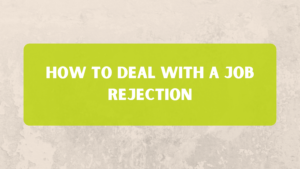
How To Deal With a Job Rejection
Continue ReadingHow to Deal With a Job Rejection
Picture this, the job search is on. You have had a few interviews with companies you quite like, and your experience is a good fit for the role. But then all of a sudden, you experience job rejection.

Firstly, you’re not on your own in experiencing rejection after an interview. Even if you were feeling confident, it doesn’t mean that a rejection hurts any less. Your confidence may take a knock, especially if your job search was positive up until this point. All these feelings are perfectly valid and normal.
But we are here to tell you that this rejection is just a stumbling block on your way to landing your dream role. Believe in yourself and your abilities!
It is important to remember that the way you handle rejection is just as important as the skills on your CV. Allowing rejection to knock your confidence and make you doubt your abilities, will negativley effect your interview performance.
If you are struggling with a recent job rejection, we have put all our decades of recruitment experience together. We can offer you advice on how best to deal with the emotions you are feeling right now. You can springboard from these emotions into a positive mindset to start searching again.
1. It’s in your human nature to be affected by rejection
Rejection weighs heavily on our minds because our brains are programmed to focus more on the negative rather than positive. This hard-wiring is why a rejection can feel completely disheartening to us. The reality is that you may be exaggerating the reasons behind why you were rejected from a role. This is what is causing you to feel so unmotivated to carry on your job search.
If you were rejected from the role because you are simply not the correct fit for the role. We advise that you take a step back and realise that you may be overgeneralising the situation. Just because you have been told you are not right for one job does not mean you won’t be right for others.
In reality, you are still a strong candidate and you should remember that one rejection doesn’t define you. Take this stage in your job-seeking process as an opportunity to start fresh.
2. A rejection is all part of the process
It’s a hard fact that facing a rejection is all part of the job application process. You’re not going to get every job that you apply for, no one does! Coming to grips with a rejection is really important in building your emotional resilience.
Plus, a job rejection is a great opportunity to start thinking outside the box. If you move away from the classic structure of job – apply – outcome you will open your mind to a more informal approach to a job hunt. This could open many doors for you as a job seeker. For example, connecting with a company you would like to work with either through an e-mail, a direct message on Linkedin, etc. Could open up a conversation with an employer who isn’t actively recruiting at the moment, but may be in the future. And who would be on the top of their recruitment list? YOU!
3. Identify learnings and build a personal development plan
Think about feedback from past rejections, and from appraisals and the like. Are there any recurring themes? What should your development priorities be?
Make a note of any weaknesses or issues that you can do something about. Use these as a focus for the way you approach your preparation next time.
Turn these requirements into a plan. What can you do to fix the gaps in your performance? Depending on the issue, there may be some training or informal coaching you can undertake to help you develop. Or it may simply be a case of working harder on some of your answers, and finding someone to practise them with.
4. Build resilience
In today’s rapidly changing workplace. Technologies are accelerating and companies transforming to develop a resilient mindset for long-term success.
See each setback as a challenge to grow both your self-understanding and your ability to bounce back. Overcoming obstacles on your career path will increase your chances of landing the right role. So make a point of staying constructive, and do all you can to learn from the experience.
After all, getting turned down from a job happens to everyone. The most important thing is what you learn from the experience.
Fancy a chat with one of our specialist consultants? Click the button below! We look forward to hearing from you.
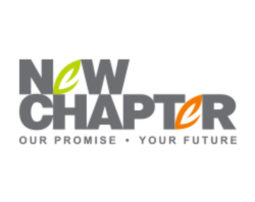
-
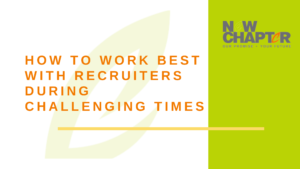
How to Work Best with Recruiters
Continue ReadingThere has never been a more crucial time to work cohesivley with recruiters. To get the most out of your investment in recruitment follow these steps New Chapter believe are the key to effective and efficient recruitment.
1. Anticipating the Need for New Hires
Establish communication or a relationship with a recruiter or recruitment company that is both vetted against your companies values and one that you believe will provide you a good service that will ultimately fill your requirements. Internally, it is important for you to develop a rigorous forecast if the company’s talent needs – and then link your talent plan into your strategic plan.
2. Specify the Job Clearly
Ensure you have defined what the job will demand, and which skills and experience are relevant, so that the recruiter clearly understands what you are wanting and can utilise their candidate database accordingly. Also take into consideration how company culture and context could affect the role and the candidate suitability.
3. Have Regular Updates with your Recruiter when they are Developing the Talent Pool
You will not be annoying your recruiter if you check in to ask how the search is going. Checking in on their progress could mean the difference between a 2-week recruitment process and a 2-month process, which can save you a lot of time and money.
4. Be Enthusiastic
Your recruiter of choice will have the up-most excitement to fill your vacancy, and it helps if you, the client, returns this enthusiasm. This can be in the form of quick responses to calls or e-mails and showing active support in a candidate’s journey.

Our consultants at New Chapter are specialists in each of their fields and are always keen to see where they can help a business with their recruitment needs. If you feel you would benefit from a chat, you can contact us on 0845 2000 741 or click the button below.
